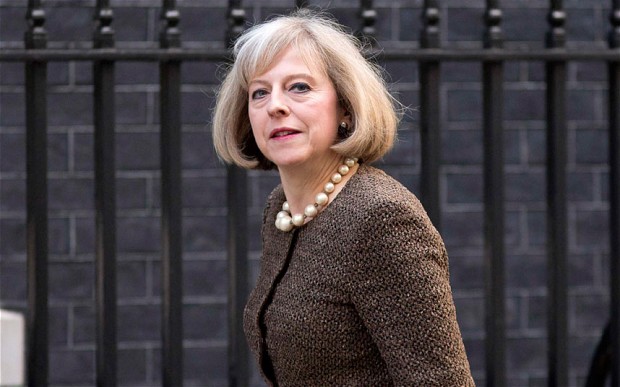This post has already been read 5094 times!
By Anne Applebaum
Theresa May had a plan: Steal the policies of Britain’s “far right” — the U.K. Independence Party — and then steal their voters, too. Since she took office about a year ago, the formerly moderate British prime minister attacked foreigners, jeered at the European Union and held Donald Trump’s hand. In April, she called an early general election, confident that UKIP voters would now endorse her “hard Brexit” and her watered-down English Tory populism.
Never mind that the moderate centrism of her predecessor, David Cameron, won a Conservative Party majority only two years ago. Never mind that she herself has offered few details about Brexit and what it will mean: May called this a “Brexit election,” declared herself the “strong and stable” candidate, promised tough negotiations with Europe and clearly expected to win a larger majority.
Yes, May had a plan — but it was a plan designed for her base. She ignored the 48 percent of the country that did not vote for Brexit, calling them “citizens of nowhere.” She ignored the anxiety that Brexit has created and the economic consequences that are now just beginning to bite. She ignored younger people, who preferred Brexit last year and now prefer the Labour Party to the Tories by a huge margin, 63 percent to 27 percent.
May also assumed that the centrists and moderates who had voted Conservative in 2015 and to “Remain” in Europe in 2016 would have to vote for her because they would have nowhere else to go. They couldn’t possibly vote for Jeremy Corbyn, the quasi-Marxist, left-wing Labour Party leader who campaigned on high taxes for the rich, heavy spending and deep skepticism toward Britain’s traditional defense and foreign policies. They couldn’t possibly prefer a Labour Party that is itself divided over Brexit. But as the campaign went on, as May grew stiffer and more prone to error, as her “strong and stable” tagline wore thin, a lot of people in the floating center looked at Corbyn and thought, “Is he really that much worse?”
And the result? Remainers’ revenge. In Canterbury, a long-standing Brexiteer member of Parliament lost to a Labour candidate, apparently thanks to a surge in student voting. In Kensington, an overwhelmingly Conservative seat — but also overwhelmingly anti-Brexit — the vote was so close that recounting was suspended at 8 a.m. on Friday so that election officials could go home and rest. Across the country, people voted Labour despite not liking Corbyn. People told pollsters that they were worried about the future of the National Health Service, that they didn’t like May’s flip-flops on elderly care, that they were unnerved by instability unleashed by the Tories.
Play to your base, insult your opponents: It’s a tactic beloved of many, including President Trump. But here’s a lesson for the opponents of populists all over the West: “Play to your base” doesn’t work when you have high turnout — and in this election it was higher than predicted. It doesn’t work when you face angry, alienated voters. And it didn’t work in Britain at all.
The outcome is a disaster, but it’s hard not to enjoy the many ironies. The Tories campaigned against a “coalition of chaos” — but now it is they who lead exactly that. May campaigned to get a larger majority, but now Britain has a hung Parliament, meaning that no party has enough seats to form a government. May tried to portray herself as a singular leader, but now she can stay in power only with the help of one of the small Northern Irish parties. If she remains prime minister — if her famously regicidal party doesn’t defenestrate her immediately — her majority will be neither strong nor stable, particularly because her party is riven by divisions over Brexit, too.
It’s funny — but it’s also tragic, for May could have played all of this differently. When she took over last year, she could have recognized Brexit for the constitutional and political crisis that it has turned out to be. She could have called for national unity to deal with this divisive issue. She could have appealed across party lines, or asked people what outcome they preferred, or sought compromise. Instead she stuck to her formula — “Hard Brexit,” tough-sounding language, “it’s all about immigration.” She kept her base — and lost everyone else.
The Washington Post



